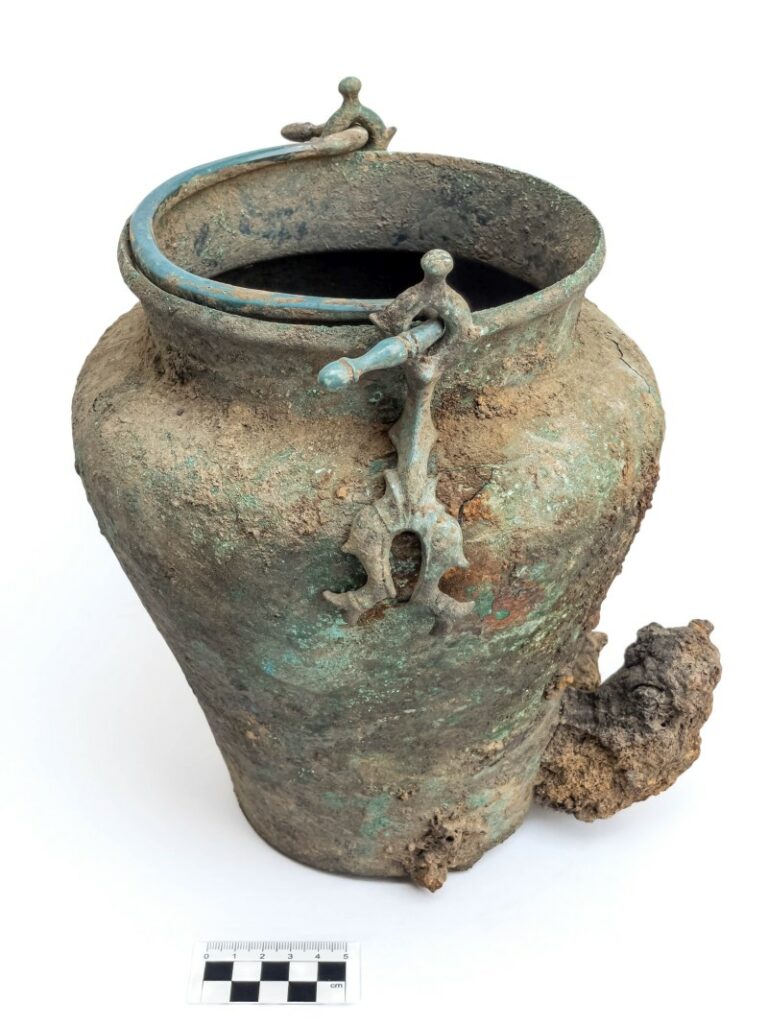
KAZIMIERZA WIELKA, POLAND—According to a Newsweek report, a Roman situla, or bucket, containing cremated human remains has been unearthed in southern Poland. The vessel was discovered in a cemetery belonging to the Przeworsk culture that was in use between the first century B.C. and the second century A.D. “The situla has survived almost intact, with elaborately cast dolphin-shaped handle attachments,” said Joanna Zagórska-Telega of Jagiellonian University. “Three legs in the shape of stylized dolphins have also survived at the base,” she added. Pieces of such vessels, thought to have been made in northern Italy or the eastern Alps, have been uncovered all over Europe, but are rarely found in Poland. This vessel may have been obtained through trade with Celts living in central Europe, Zagórska-Telega explained. Its metal will be analyzed for more information before conservation of the situla begins. Researchers will also examine the human remains within the vessel, which are thought to belong to a male warrior, based upon the iron weaponry that were buried next to the urn. The ritually bent and burned sword, spearheads, and shield fittings have been dated to the first century B.C. on the basis of their style. To read about a situla and other artifacts uncovered in a second-century b.c. grave in Tuscany, go to "Etruscan Burial Crown."